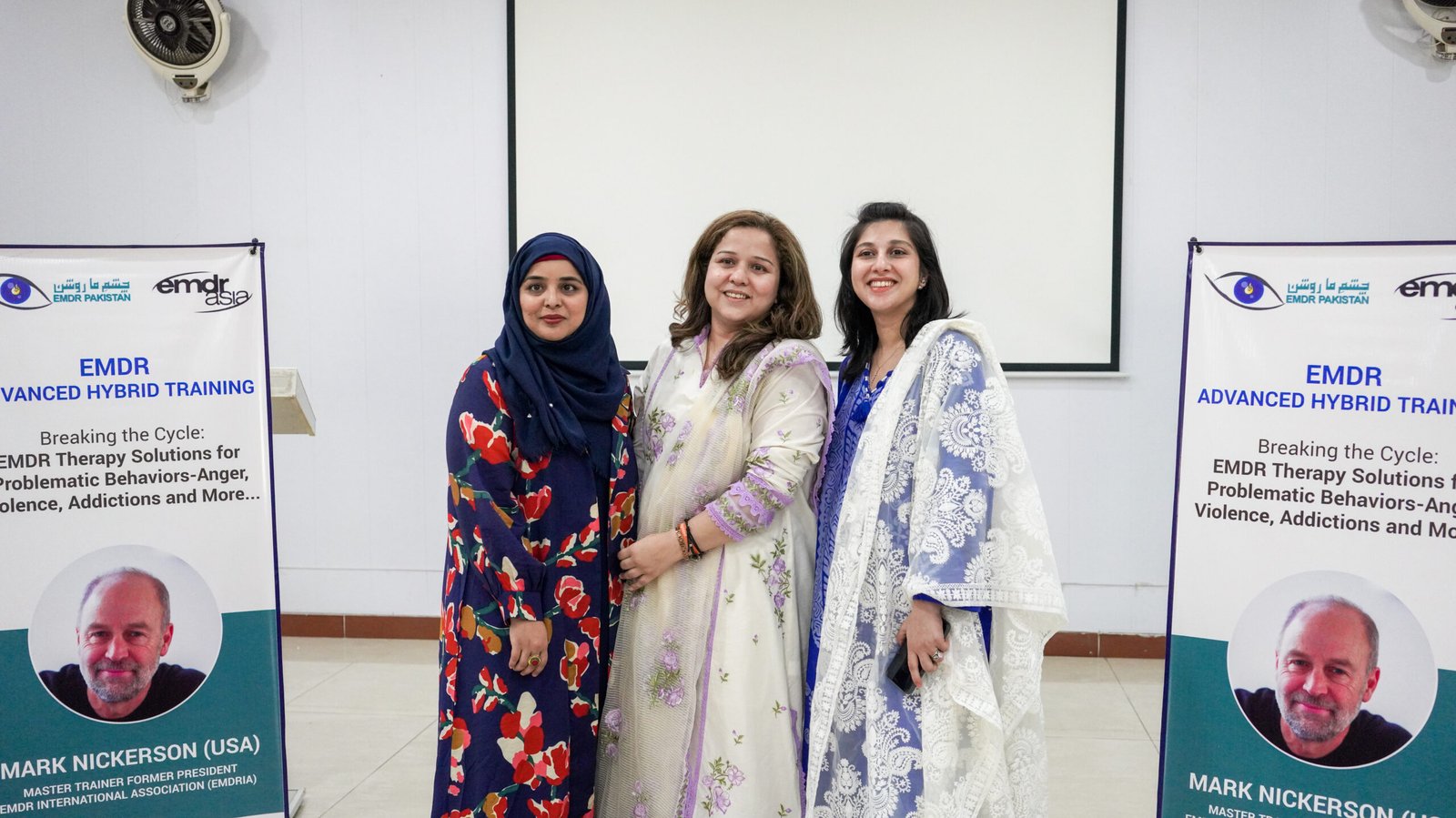How to Be Trained in EMDR
For Mental Health Professionals in Pakistan
EMDR training is available to licensed mental health professionals who wish to offer trauma-informed therapy that meets global standards. The training process is competency-based and includes both theoretical learning and supervised clinical practice.
Eligibility Criteria
You are eligible to begin EMDR Basic Training if you are:
- A licensed mental health professional (clinical psychologist, psychiatrist, counselor, psychotherapist, etc.)
- Actively involved in clinical work
- Affiliated with a recognized institution, professional body, or under supervised practice
- Committed to trauma-informed, ethical care

Basic EMDR Training Structure
Training is divided into two parts:
Part 1: Foundational Learning
Covers the theory behind EMDR, the 8-phase protocol, client selection, trauma formulation, and initial applications. Includes lectures, case discussions, and practice with fellow trainees.
Part 2:
Advanced Application
Each part includes:
- Minimum of 20 hours of instruction
- Supervised practicum sessions
- Required reading and case documentation
Consultation Requirements
Between and after the training parts, you will:
- Receive 10 to 20 hours of consultation from an accredited EMDR Consultant
- Discuss your clinical cases using EMDR
- Reflect on technique, protocol adherence, and client response
Consultation is mandatory and ensures safe, ethical application of EMDR with real clients.
Certification and Next Steps
After completing both parts of training and required consultation hours, you are considered EMDR Basic Trained. You may then:
- Begin offering EMDR therapy to appropriate clients
- Join EMDR Pakistan’s practitioner network
- Work toward Certified Practitioner status by logging additional clinical hours and supervision
Ethical Standards
Only those who have completed EMDR Basic Training are ethically permitted to practice EMDR. Practicing without appropriate training can harm clients and undermines the integrity of trauma therapy.
